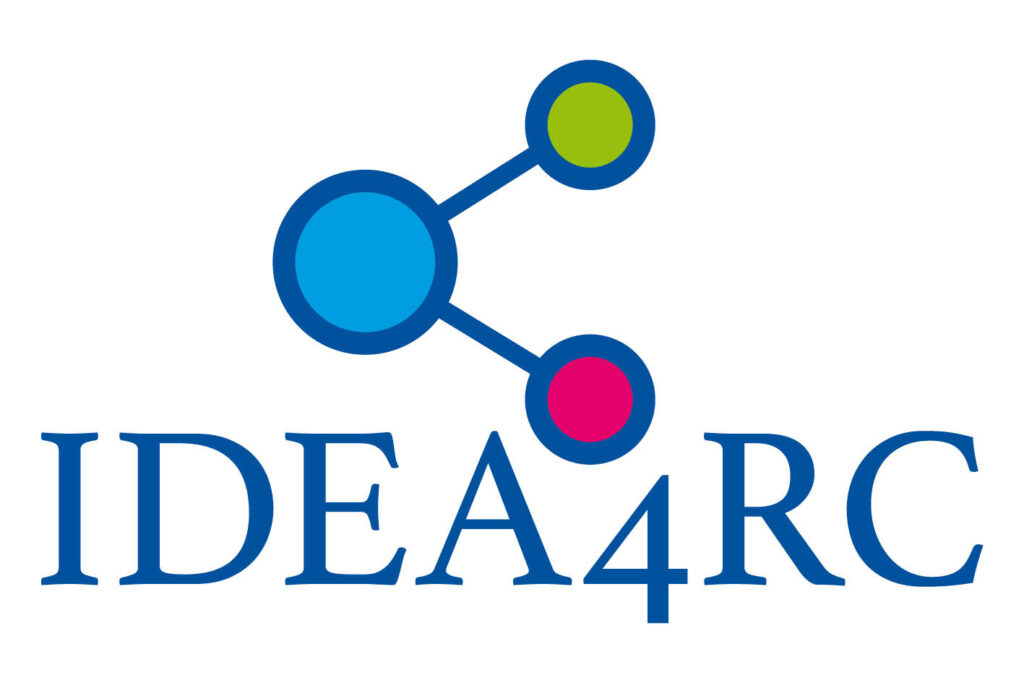-
Hot takes from the fifth consortium meeting in Rome
IDEA4RC members gathered in Rome on 21 and 22 November for the fifth consortium meeting, which was held at the headquarters of ENG, Engineering Ingegneria Informatica. Now we need data! “Over the last two years we learned how to work together, and found a common language”, said Annalisa Trama, epidemiologist at the National Cancer Institute…
-
How IDEA4RC is contributing to the EURACAN Registry – a webinar for patients
On December 4, 2024, the European Patient Advocacy Groups of the EURACAN network participated in a webinar about IDEA4RC’s contributions to the EURACAN registry. The session featured Annalisa Trama, an epidemiologist at the National Cancer Institute of Milan and the coordinator of both the IDEA4RC project and the EURACAN registry. The EURACAN registry began in…
-
IDEA4RC webinar series
The IDEA4RC project is developing innovative solutions to create a health data ecosystem on rare cancers. To find out more, join our webinar series: Each meeting will be held online. A registration link for webinar 2,3, and 4 will be shared as the date approaches. IDEA4RC partners wish to engage in an open dialogue with…
-
IDEA4RC at Connect To Win 2024
On November 26th, 2024, Annalisa Trama, epidemiologist at the National Cancer Institute of Milan and IDE4RC coordinator, participated in the annual meeting of the DIGital Institute for Cancer Outcome REsearch (DigiCore), Connect To Win, which was held in Utrecht. Trama presented IDEA4RC activities as a part of the DigiCore Real-World Evidence (RWE) projects. They include:
-
Fifth IDEA4RC plenary meeting
IDEA4RC project members will gather in Rome on November 21-22 for the fifth consortium meeting, hosted by ENG Ingegneria Informatica Spa. The meeting will be the occasion to show demos of the various software components that will constitute the IDEA4RC data space and share the status and next of the data preparation activities. IDEA4RC members…
-
Unlocking rare cancer data: using large language models to extract information from clinical notes
One of the main objectives of the IDEA4RC project is to develop an algorithm capable of extracting data from clinicians’ notes and pathology or radiology reports stored within the hospital’s information system. Currently, a wealth of information is locked within these texts, which cannot be fully utilized by researchers to uncover more about rare cancers,…
-
Specification of the multimodal data navigator
The IDEA4RC project aims to enhance data findability and reusability by developing an advanced augmented analytical system powered by Artificial Intelligence (AI), specifically through the Multimodal Data Navigator. This deliverable outlines the comprehensive approach taken to design and implement this system, ensuring it meets the needs of diverse stakeholdersand adheres to the FAIR principles (Findability,…
-
Pilot projects plan
This deliverable outlines a comprehensive deployment plan for the IDEA4RC pilot projects focused on rare cancer epidemiology. The primary goal is to enable secure, privacy-preserving environments that facilitate the secondary use of structured and unstructured data across several federated Centres of Excellence (CoEs). IDEA4RC deployment covers the implementation of advanced technologies such as Natural Language…
-
IDEA4RC at MIE24
IDEA4RC members participated in the 34th Medical InformaticsEurope Conference (MIE 24) that was held in Athens from August 25th to 29th. The theme of the congress was “Digital Health and Informatics Innovations for Sustainable Health Care Systems”. On August 27th, IDEA4RC partners held the workshop “Towards a European Cancer Minimum Data Model and European Oncology…
-
Federated learning in health research: interview with Frank Martin
In building its rare cancers ecosystem, IDEA4RC is following a federated learning approach. This means that the data of each clinical centre participating in a specific research study will not leave the centre. Instead, the results of the analysis on each centre’s data will be communicated to a central server, where they will be combined…
Intelligent ecosystem to improve
the governance, the sharing,
and the re-use of health data for rare cancers
